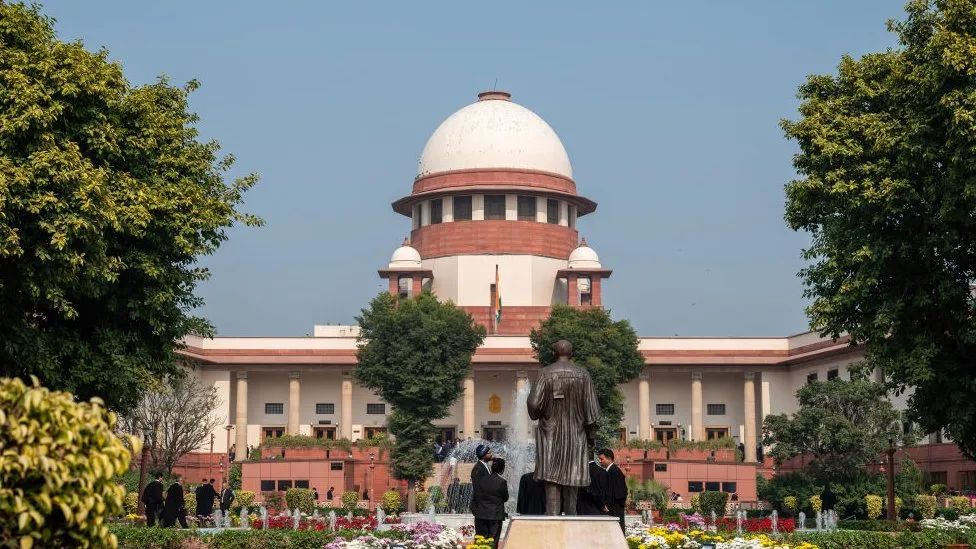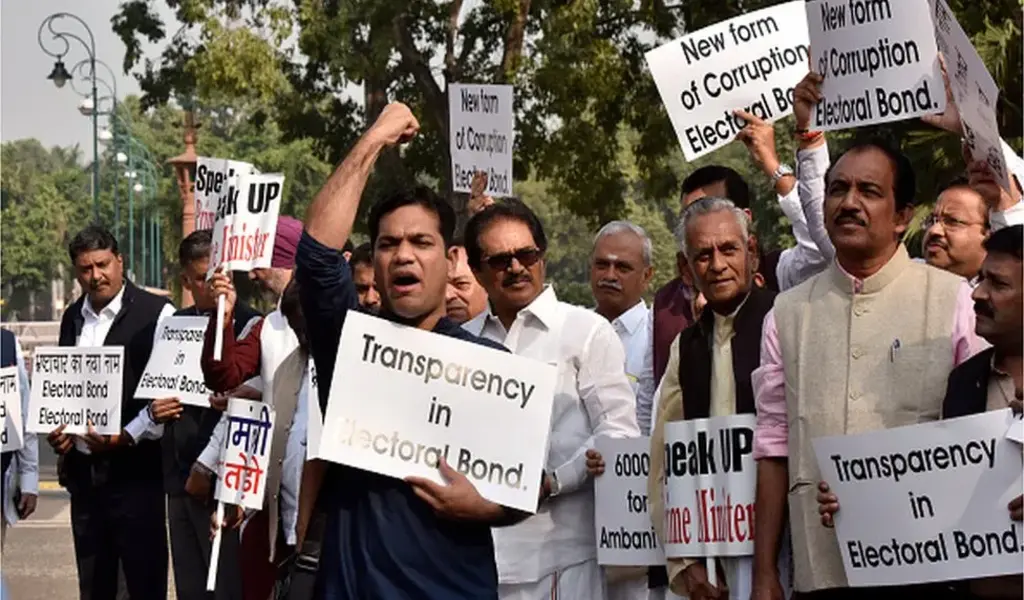(CTN News) – The Indian Supreme Court ruled that a programme permitting citizens to donate anonymously to political parties was unconstitutional.
In 2018, Prime Minister Narendra Modi’s government introduced electoral bonds to increase transparency in political spending.
But detractors claim it has done the reverse, making the process more opaque.
Mr Modi’s Bharatiya Janata Party (BJP) has gotten most of the funds through the bonds.
The programme was challenged in the Supreme Court as a “distortion of democracy”.
On Thursday, a five-judge constitutional tribunal decided that electoral bonds violate citizens’ right to government-held information.
According to Chief Justice of India DY Chandrachud, the Right to Information (RTI) statute is “not confined to state affairs but also includes information necessary for participatory democracy”.
“Supreme Court Directs State Bank of India to Halt Issuance of Electoral Bonds and Disclose Buyer Identities”
“Political parties are relevant units in the electoral process, and information about funding of political parties is essential for electoral choices,” he said.
The court ordered the government-run State Bank of India (SBI) to stop issuing such bonds, to divulge the identities of people who purchased them, and to supply the Election Commission with information on bonds redeemed by each political party within a week.
It also noted that electoral bonds were not the sole way to reduce the use of cash or “black money” and urged the government to consider other options.
“Citizens have a duty to hold the government accountable for their actions and inactions, and this can only happen if the government is open and not clothed in secrecy,” the judge stated.

The government justified the policy, claiming it was implemented to eliminate financial donations to political parties, as private donations pay a large portion of India’s elections.
“India’s Electoral Bond Scheme Struck Down: What’s Next for Political Funding?”
These interest-free, time-limited bonds are issued in fixed denominations of 1,000 to 10 million rupees ($12.50 to $125,000) and can be purchased from a state-owned bank at particular times during the year.
Citizens and businesses can donate to political parties without disclosing their identities.
Only registered political parties that received at least 1% of the votes cast in the most recent election to the parliament or state assembly are eligible to receive the bonds, which must be cashed within 15 days.
Supporters of the plan believe that it makes political party fundraising traceable and public while preserving contributors’ identities.
However, detractors argue that the bonds are not completely anonymous because the state-owned bank keeps track of both the donor and the beneficiary, allowing the ruling government to easily access details and “use” the information to influence donors.
They add that there is no public record of who purchased each bond or to whom the donation was made, thus taxpayers are left in the dark regarding the source of the funds.
Petitioners stated in court that this violates the people’s right to know how political parties are funded and fosters corruption.
The administration refuted the charge, claiming that it was vital to keep donors’ identities secret so that they would not face “any retribution from political parties”.
So far, electoral bonds of 160 billion rupees ($1.9 billion or £1.5 billion) have been auctioned in 29 tranches.
The BJP was the primary benefit, receiving 57% of the bonds, compared to 10% for the main opposition Congress party.






